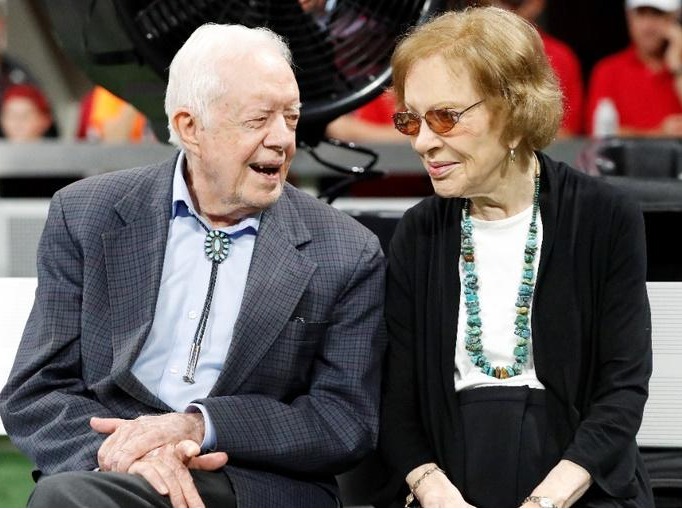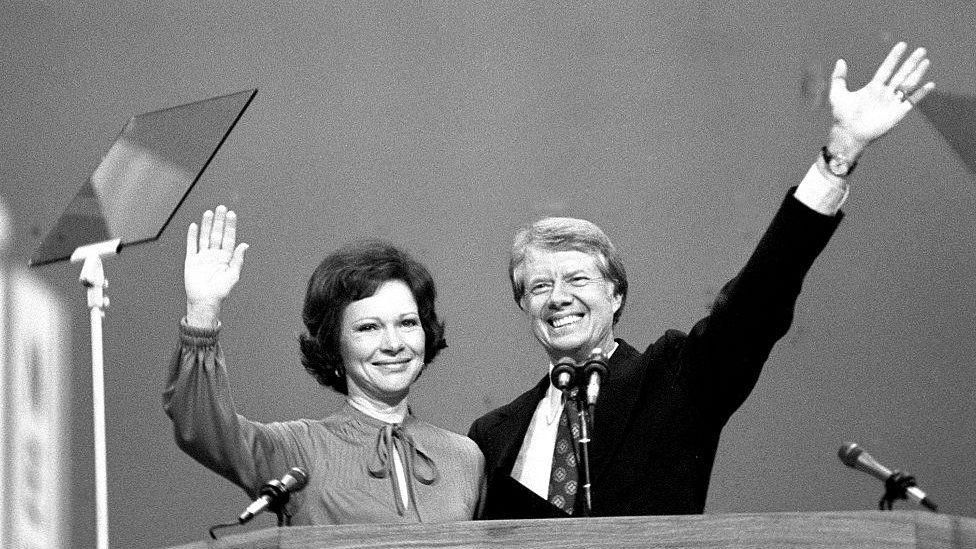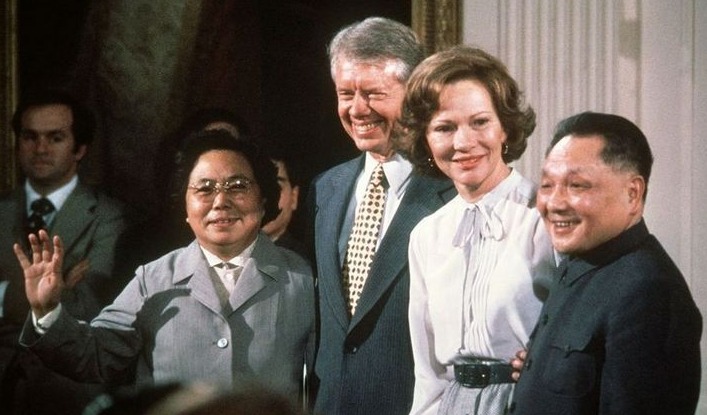
When President Jimmy Carter normalized relations with China in January 1979, the one person besides him was his wife, Rosalynn Carter. She is pictured admiring a work of Suzhou embroidery and welcoming Chinese leader Deng Xiaoping and Madame Zhuo Lin to the State Dinner at the White House. But she was much more than a bystander to history: as an equal partner to President Carter, she was not only his spouse for 77 years but a global humanitarian leader in her own right.
Eleanor Rosalynn Smith was born in August 1927 in Plains, where Jimmy Carter was born three years earlier. Plains is a small town in Georgia of 0.8 square miles with a main street running through its center and two rows of houses on either side, bookended by the Maranatha Baptist Church where the Carters taught Sunday School until recently. When I visited Plains in 2017, I saw a small stack of photocopied leaflets at the general store, providing directions across the road to where the former President and First Lady lived in retirement.
The White House may have afforded her an international platform, but she chose to devote her life’s work to people living on the margins of society. In particular, she championed the rights of women and the elderly, and those struggling with mental health. She broke ground, removed barriers, and injected a compelling tone of compassion and inclusivity. As much as she was photographed in her construction uniform, hauling timber as part of her volunteer work at Habitat for Humanity, she was also a co-founder of The Carter Center, the non-profit organization in Atlanta that is committed to waging peace, fighting disease, and building hope.

Of the many remarkable achievements of The Carter Center, perhaps the most remarkable (and unrecognized) is this: in 1986, when President and Mrs. Carter began an international campaign for the eradication of this neglected tropical disease, 3.5 million people in 21 countries in Africa and Asia were living with its devastating consequences. Today, under The Carter Center’s leadership, there are just 13 cases globally—putting Guinea Worm on track to become only the second human disease to be eradicated, and the first disease to be eradicated without the use of a vaccine or medicine.
In 2009, Mrs. Carter traveled to Beijing with President Carter, Dr. Henry Kissinger, and Dr. Zbigniew Brzezinski, to mark 30 years after normalization of diplomatic ties with China. In a few weeks from now, the two countries will mark the 45th anniversary of that historic event. We will remember Mrs. Carter and we will recall her words that became her guiding principle: “Do what you can to show you care about other people, and you will make our world a better place.”
All of us at the China-United States Exchange Foundation express our sincere condolences to President Carter and his children, and the women and men of The Carter Center who will extend the impact of Rosalynn Carter’s profound legacy.
James Chau
President, China-United States Exchange Foundation
